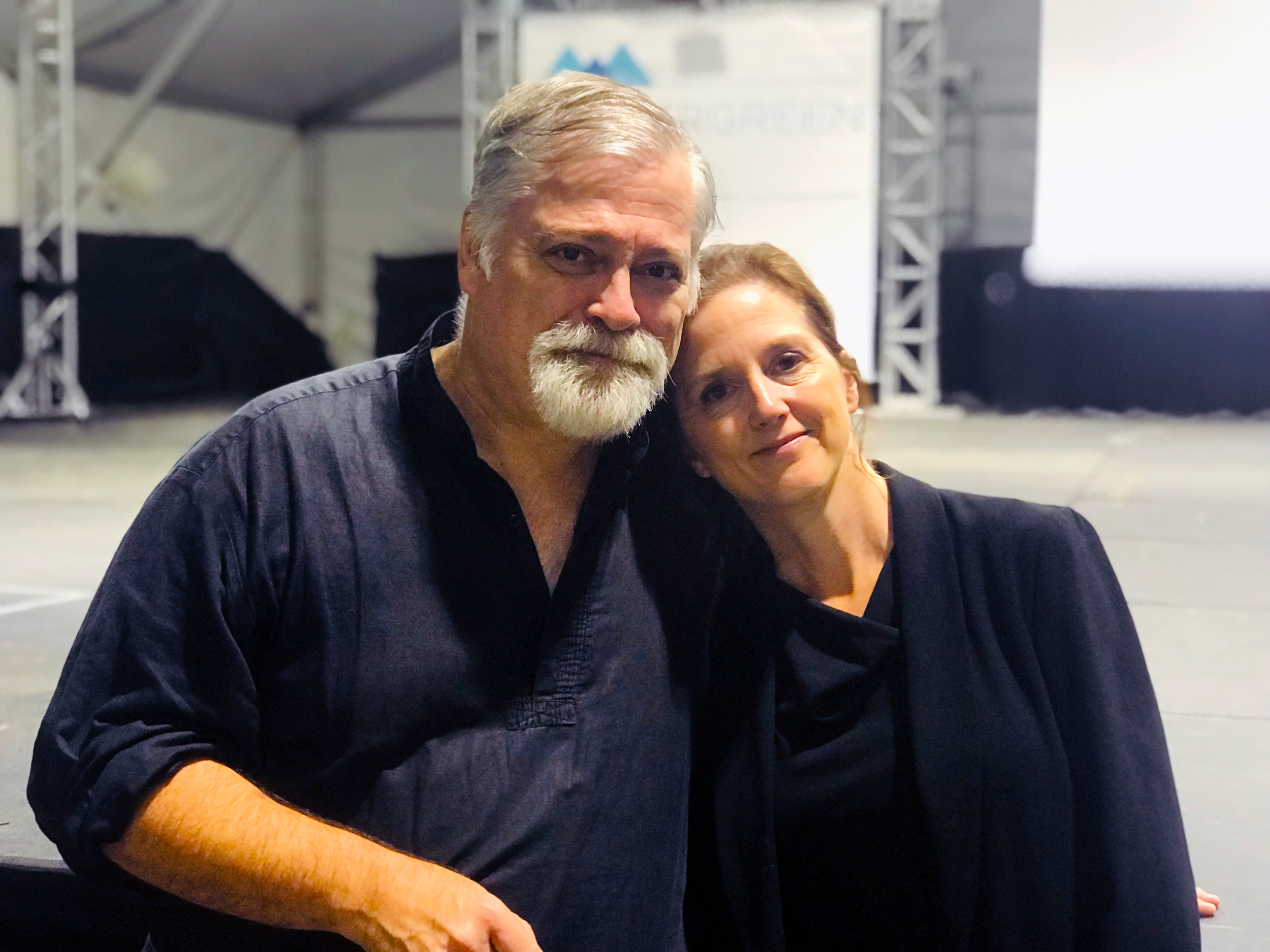Moviola (2022)
For: 2.1pic(=alto)-2.1CA-2clBb.1clEb-2-1 / 4-3-3-1 / timp.2perc / hp / pf / strings
Duration: 26’
Movement Titles: Exit, Pursued (8:32) | Glass Heart (8:53) | Sixteen Kisses (9:11)
First Performance: 16 October 2022 / George Washington Masonic National Memorial Theater, Alexandria, VA / Washington Metropolitan Philharmonic / Erin Freeman, conductor
Dedication: “For Erin Freeman”
Publisher: Peermusic Classical
Daron Hagen and conductor Erin Freeman, to whom the work is dedicated. p/c: Gilda Lyons
Program Note:
(Note: This program note pertains to the concert work derived from Hagen’s various scores for silent films. For Hagen’s score to the Orson Welles short Too Much Johnson, click here.)
A moviola is an obsolete machine that reproduces the picture and sound of a movie on a small screen on which filmmakers once edited film. Its function has been superseded by digital film editing, which is done on computers. Taken as a whole, Moviola can be heard as a celebration and musical summation of the five scores for public domain silent films that I crafted between 2015-2022 for Erin Freeman and the Wintergreen Festival Orchestra—which, as the project matured, became known affectionately as the “Tramp Orchestra.”
The first movement, called Exit, Pursued, takes as its starting point what is probably the most famous Shakespearean stage direction, at once hilarious and perplexing because it seems to appear without warning in A Winter’s Tale. Either the bear interlude serves as the tragic end of Antigonus or as the comic start to the second half of the play. The musical ideas in it originate in the score that I crafted for my edit of Orson Welles’ “lost” silent film Too Much Johnson. The second movement, called Glass Heart, celebrates guileless tendresse. I first wrote the gymnopédie theme for the Flower Girl in a score for Charlie Chaplin’s City Lights; the second theme (heard first in a solo for the alto flute) is from my score for A Dog’s Life. Other ideas are drawn from a piano concerto penned for The Tramp. I first sketched the theme of Sixteen Kisses—the final movement—as an artsong based on the words of Emily Dickinson’s poem “Ample Make This Bed” in March 1985. Sixteen musical variations on the theme track the transit of the relationship between Dr. Jekyll and his fiancée, Millicent in John Barrymore’s great 1920 Dr. Jekyll and Mr. Hyde.
